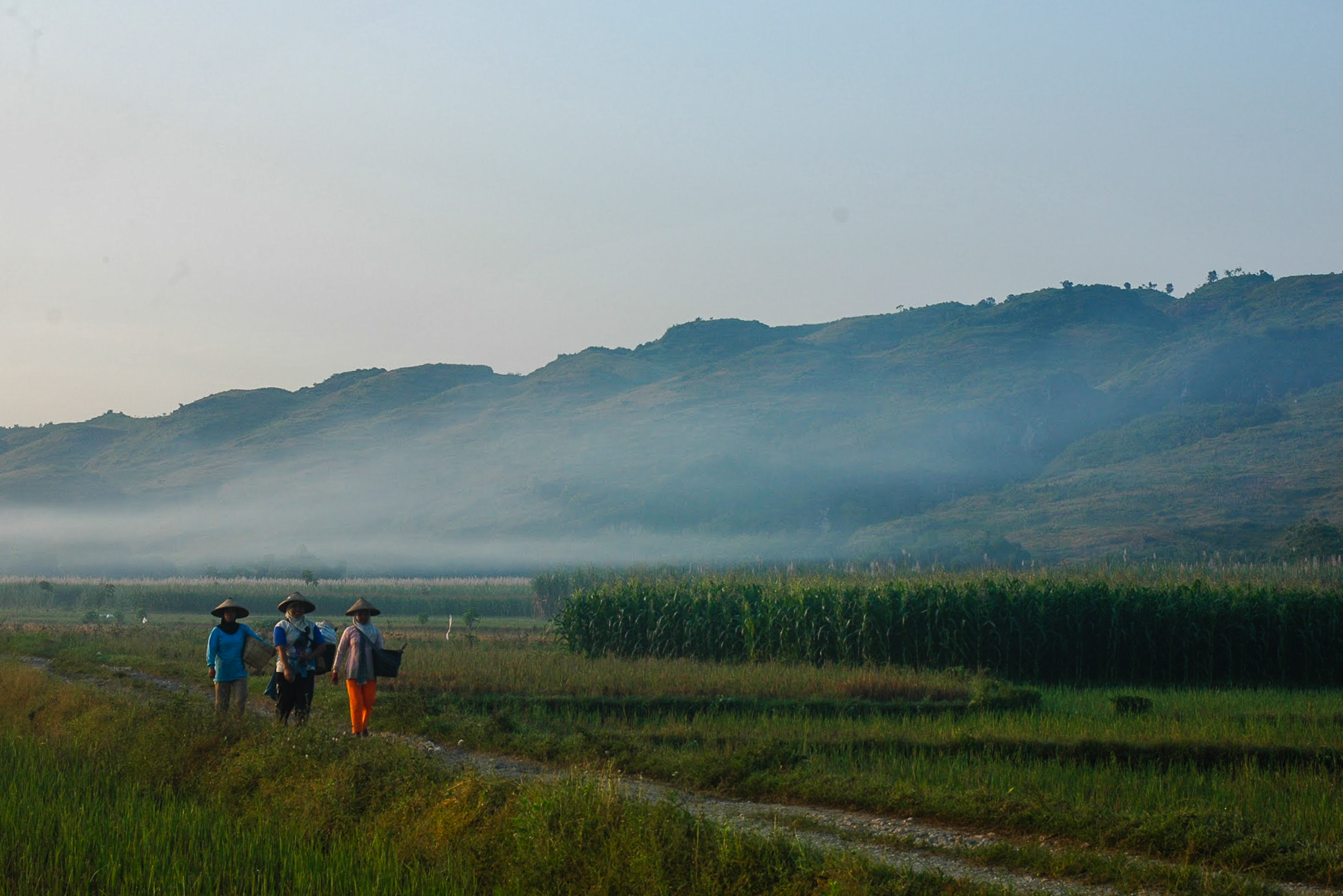Key Points:
- Germany’s OECD National Contact Point for Responsible Business Conduct has issued a statement responding to complaints over Heidelberg Materials’ controversial plans to construct a cement mine and factory in Central Java.
- Local and Indigenous communities oppose the planned mine, which could threaten critical ecosystems and water supplies for an entire region.
- In its statement, the National Contact Point calls on Heidelberg Materials to provide the affected communities with the environmental and social impact assessment for the project.
Germany’s OECD National Contact Point for Responsible Business Conduct (NCP) has published a final statement in response to a complaint filed against Heidelberg Materials regarding the company’s controversial plans to build a cement mine and factory in Central Java. Community groups and the Indonesian government have warned that mining in the area would do irreparable harm to Indigenous and other local populations. The complaint states that the project jeopardizes the water supply and agriculture of at least 35,000 people and threatens sites of spiritual importance to the Indigenous Samin people. The project also threatens the sensitive local karst system, which acts as a natural carbon sink and prevents soil erosion and landslides in the area. In its final statement, the NCP calls on Heidelberg Materials to provide the affected communities with its environmental and social impact assessment, as recommended by the OECD Guidelines.
The statement follows a nearly four-year process facilitated by the NCP, including an attempt at mediation between the company and complainants that ultimately failed to progress due to the company’s insistence on excessive confidentiality requirements. “The secrecy demanded by the company would have prevented the community representatives involved from freely consulting those affected about the process. Such excessive confidentiality rules are not only unnecessary, they also threaten to destroy trust and solidarity within the communities during a potentially lengthy mediation process,” says Mathias Pfeifer from FIAN Germany.
“[The mediation] was only ended because we couldn’t agree on the issue of confidentiality. During the mediation, we actually wanted to explain the situation on site, the problematic consultation process and much more to Heidelberg Materials. We were unable to convey all of this because the process had to be ended prematurely,” says community spokesperson Bambang, who was involved in the mediation.
Heidelberg Materials, one of the world’s largest cement manufacturers, has faced strong public pressure to cancel the Central Java project. This has included numerous protests in Indonesia and at Heidelberg’s annual general meetings in Germany, and a lawsuit in Indonesian courts. The company, formerly known as HeidelbergCement, is currently trying to raise its profile in the areas of environmental and social responsibility. Its activities in Central Java and other problematic projects call its commitments into question.
“Heidelberg Materials has a responsibility under international human rights law to disclose the project impact assessment to affected communities and explain how they would be affected by the project. These communities have a right to participate in decision making, including on whether such a high risk project should proceed,” said Natalie Bugalski, senior legal and policy director at Inclusive Development International, which has been serving as one of the advisors to communities in Central Java impacted by the project. “In failing to take these steps, Heidelberg Materials is failing in its human rights and environmental due diligence responsibilities and risks material harm to future operations should the project be developed.”
Inclusive Development International and FIAN Germany supported the community representatives in the complaints process. Together with the Heinrich Böll Foundation, Watch Indonesia!, Rettet den Regenwald and the Stiftung Asienhaus, they will continue to support the affected communities. “We will continue our fight to prevent the construction of the cement factory in our village. The land is a legacy of our ancestors. It is for agriculture to feed our children and grandchildren. The Kendeng Mountains are also an important water reservoir, and limestone mining will damage this water reservoir. If there is a water shortage, we women will be the first to be affected,” explains Suparmi, a community representative from the village of Tambakromo.
“The project in Pati would disrupt access to water and threaten the food security for thousands of people. This would be a clear violation of the German Supply Chain Act,” adds Mathias Pfeifer from FIAN Germany. Heidelberg Materials and its subsidiaries are subject to the German Supply Chain Act, which came into force in January 2023.
Further information:
- The OECD Guidelines for Multinational Enterprises, a set of principles and standards for responsible business conduct, require OECD member states to establish a National Contact Point to deal with complaints against multinational enterprises that do not comply with the regulations.
- The final report of the NCP is available at: https://www.bmwk.de/Redaktion/DE/Beschwerdefaelle-NKS/Abschliessende-Erklaerung/kendeng-gebirge-gegen-heidelberg-cement-ag.pdf?__blob=publicationFile&v=13
- The OECD complaint is available at: https://www.inclusivedevelopment.net/wp-content/uploads/2020/09/Complaint-to-German-NCP-Regarding-HeidelbergCement_9Sept2020_Redacted-for-pub.pdf
- More information on the importance of karst systems in mitigating climate change and natural disasters can be found at: https://th.boell.org/en/2021/03/03/why-we-should-protect-karst-landscapes
- A 2017 special impact assessment by the Indonesian Presidential Office and Ministry of Environment and Forestry outlines significant risks posed by mining in this region, including stating that “several rare, protected animals will face further degradation or even become extinct” if development in the Kendeng Mountains continues.
- Heidelberg Materials’ social and environmental record has been in the spotlight before, including:
- In 2016, Human Rights Watch released a report detailing how the company’s quarry in the occupied Palestinian territories is contributing to violations of international humanitarian law and human rights abuses.
- For years, Western Sahara Resource Watch has raised concerns regarding the company’s operations in Western Sahara potentially contributing to illegal military occupation.
- Local communities in South Wales, UK, are also seeking to challenge the expansion of a quarry by a Heidelberg subsidiary that they allege threatens local wildlife, homes, and public health.


